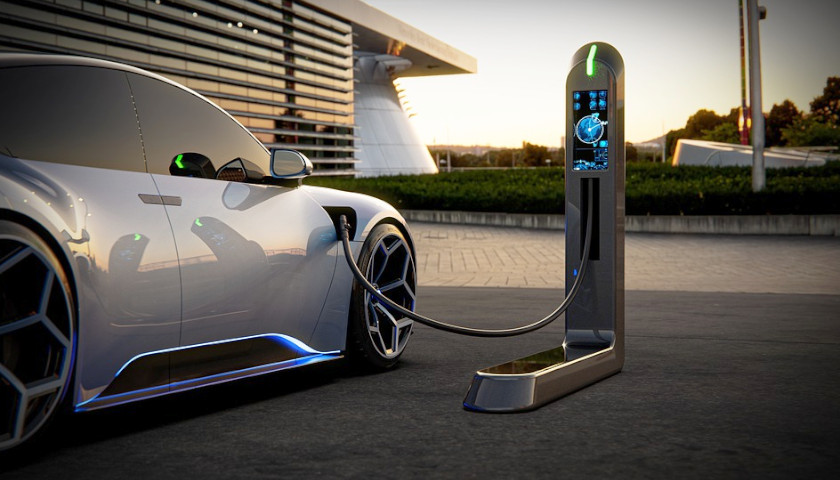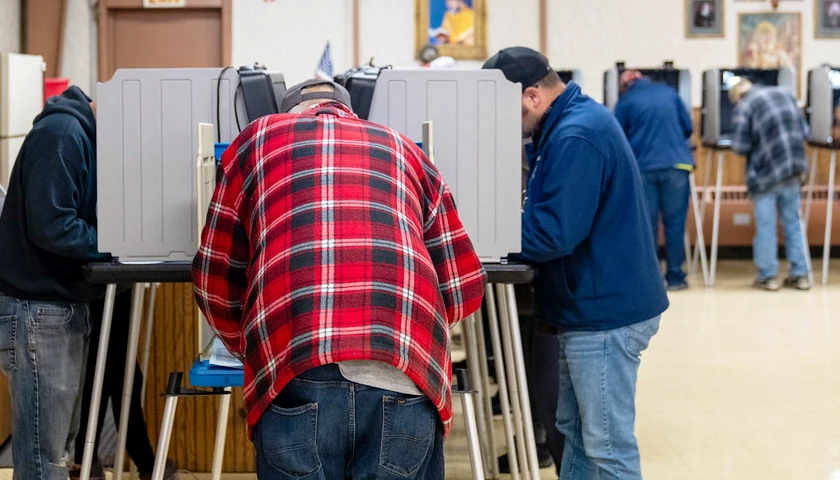by J.D. Davidson
When the state of Ohio buys new vehicles, 25% of those would be electric in less than three years if a bill introduced in the Ohio House becomes law.
State Reps. Kent Smith, D-Euclid, and Casey Weinstein, D-Hudson, want all new vehicles for state’s fleet of 12,405 to be completely electric by Jan. 1, 2030.
“This legislation makes Ohio better and keeps Ohio economically vibrant. It is crystal clear that the auto industry is changing, and if Ohio doesn’t change with it, we will lose out on the benefits of the new energy economy. This legislation is a win-win for Ohio,” Smith said.
The transition would begin with 25% of new vehicle buys being electric by Jan. 1, 2025 and moving to 50% by Jan. 1, 2030. After that date, all new purchases would be electric.
According to a recent Deloitte report, total EV sales are expected to grow from 2.5 million in 2020 to 11.2 million in 2025, reaching 31.1 million by 2030.
“It’s time to bring our state fleet into the 21st century by transitioning to electric vehicles,” Weinstein said. “Modernizing our state vehicles will save taxpayer dollars, improve our air quality, and allow Ohio to remain a leader in the auto industry. If we don’t act now, Ohio will be left behind while the rest of the world moves forward towards a clean energy future.”
More states are pushing electric vehicles to both the general population and as fleets begin to replaced. In Michigan, Gov. Gretchen Whitmer wants to spend $60 million on EVs.
The moves, though, come with challenges.
A study published in Science Advances says global demands for lithium and cobalt, essential to EV batteries, are expected to increase around 10-fold from 2018 to 2030, surpassing current supply.
The analysis found the carbon footprint of a lithium-ion EV battery can be reduced by up to 17% if reused before recycled. For example, batteries with reduced energy storage capacity can store wind and solar energy.
Researchers estimate the demand of facilities to recycle lithium-ion EV batteries and extract raw materials currently outpaces supply and will only grow in coming years.
Sen. Michael Rulli, R-Salem, took steps he said he hopes will help the state grow in both the electric vehicle and productions market.
His bill would provide financial incentives to EV manufacturers who retool traditional auto production facilities for EV manufacturing. It would also provide grants for colleges and trade schools that train workers for those facilities.
If passed and signed into law, Senate Bill 307 would also create a task force to provide guidance on the market and make investments into EV charging stations.
Rulli’s bill, which has been assigned to a committee, has the support of the Ohio Chamber of Commerce.
– – –
An Ohio native, J.D. Davidson is a veteran journalist with more than 30 years of experience in newspapers in Ohio, Georgia, Alabama and Texas. He has served as a reporter, editor, managing editor and publisher. Davidson is a regional editor for The Center Square.





